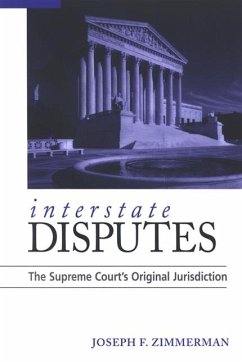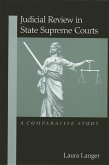With respect to "controversies between two or more states," the U.S. Constitution grants original jurisdiction to the U.S. Supreme Court, and in 1789 Congress made exclusive the Court's jurisdiction over interstate disputes. In this book, Joseph F. Zimmerman examines the role of the Supreme Court in settling disputes between states, the criteria developed by the Court to determine whether its original jurisdiction should be invoked, and the function of special masters, who, as adjuncts to the Court, facilitate negotiated settlements or provide the factual information needed by the Court to render sound decisions. Zimmerman analyzes a wide range of specific disputes, from boundary lines to financial matters to water allocation, diversion, and pollution. To alleviate the Court's exceptionally heavy and critically important appellate workload, the author proposes alternative mechanisms for resolving controversies between sister states, including interstate boundary compacts, interstate regulatory compacts, and several congressional initiatives.
Dieser Download kann aus rechtlichen Gründen nur mit Rechnungsadresse in A, D ausgeliefert werden.









